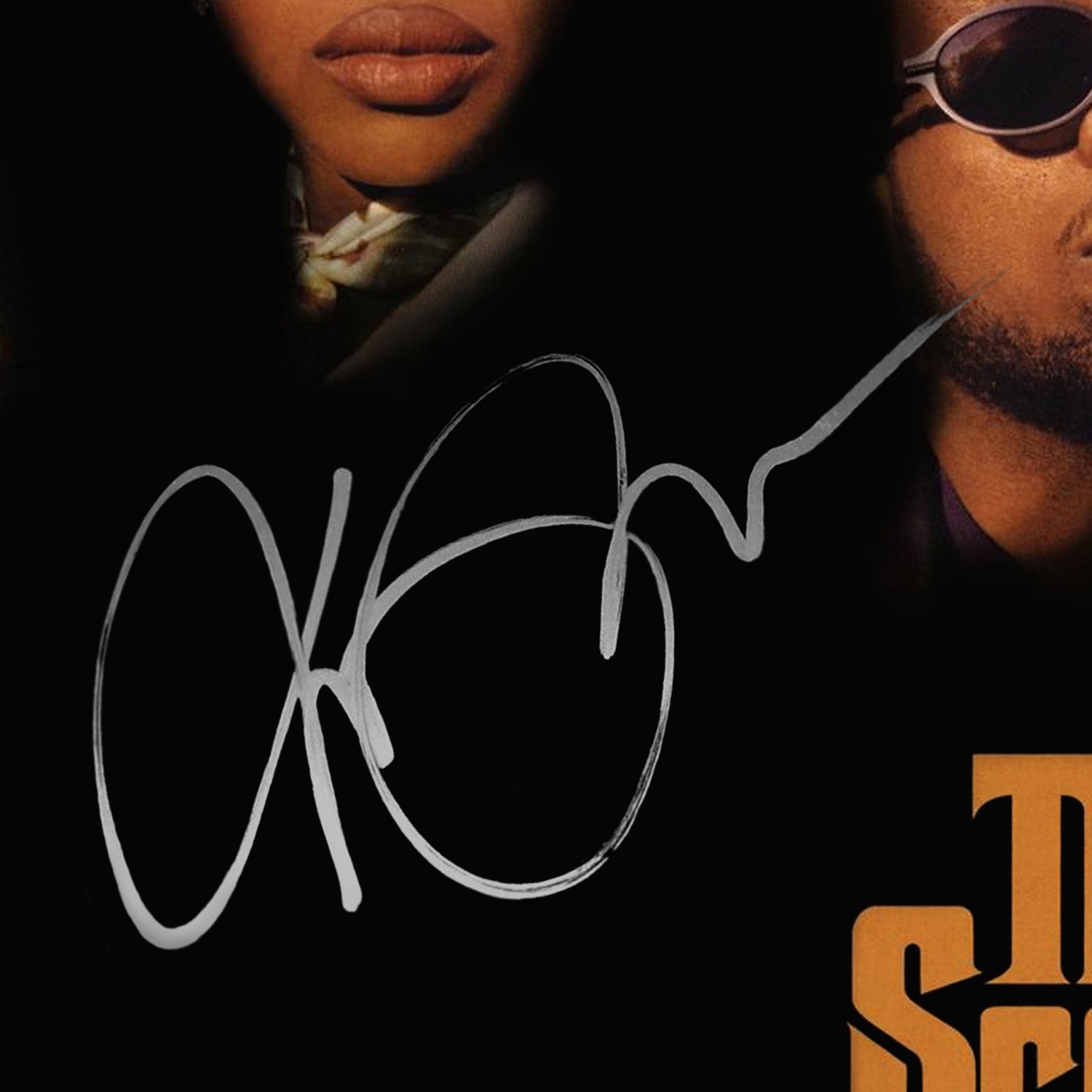

It's almost like a hip-hop version of Tommy, like what The Who did for rock music." Music It tells a story, and there are cuts and breaks in the music. It's like how radio was back in the 1940s. In regard to The Score's unified themes and production, Lauryn Hill commented, "It's an audio film. It was three kids from an urban background expressing themselves." It sounded like a feel-good hip-hop record to us, and it was different than what anyone was doing at the time. There wasn't any pressure - it was like 'let's make some music,' and it just started forming into something amazing. It was done calmly, almost unconsciously. Recording for the album began in June 1995, and extended into November 1995 at what Jean described as a, "relaxed pace. The group used the money for recording equipment and set up a studio in Wyclef Jean's uncle's basement, which they referred to as the Booga Basement. In early 1995, he gave them a $135,000 advance and granted them complete artistic control for a follow-up album. The Score was nominated for the Grammy Award for Album of the Year, becoming the second rap album to receive a nomination and the first for a hip-hop group, while winning the Grammy Award for Best Rap Album, along with Best R&B Performance by a Duo or Group with Vocal for "Killing Me Softly" at the 39th Annual Grammy Awards.Īlthough the Fugees' previous album, Blunted on Reality proved to be critically and commercially unsuccessful, Chris Schwartz, the head of Ruffhouse Records, decided to give the group another chance. In 1998, The Score was included in The Source's 100 best rap albums list, and in 2020, the album was ranked number 134 on Rolling Stone magazine's list of the 500 greatest albums of all time.

In addition to receiving mostly favorable reviews upon its release, The Score has garnered a considerable amount of acclaim over the years, with many music critics and publications noting it as one of the greatest albums of the 1990s, as well as one of the greatest hip-hop albums of all time. As of June 2021, the album is the fifth most streamed rap album released in the 1990s on Spotify. With an estimated 22 million copies sold worldwide, the album has become one of the best-selling albums of all time, at the time of its release it became the best-selling hip-hop album of all time, and remains the best-selling album by a hip-hop group. It is the best-selling album by an American hip-hop act in France, where the album has been certified Diamond. As of February 2021, The Score has been certified seven times platinum in sales by the Recording Industry Association of America (RIAA). The singles " Killing Me Softly", " Fu-Gee-La", and " Ready or Not" also achieved notable chart success, and helped the group achieve worldwide recognition. It also topped the Top R&B/Hip-hop Albums chart for eight weeks, becoming the longest running number-one for a hip-hop group, and topped the 1996 year-end chart. Upon its release, The Score was a commercial success, peaking at the number-one spot on the Billboard 200, and becoming the third best selling album of 1996. Most versions of the album feature four bonus tracks, including three remixes of "Fu-Gee-La", and a short acoustic Wyclef Jean solo track entitled "Mista Mista". The album's guest verses are from Outsidaz members Rah Digga, Young Zee, and Pacewon, as well as Omega, John Forté, and Diamond D. Primarily, The Score's production was handled by the Fugees themselves, Jerry Duplessis and Warren Riker, with additional production from Salaam Remi, John Forté, Diamond D, and Shawn King. The album features a wide range of samples and instrumentation, with many aspects of alternative hip-hop that would come to dominate the hip-hop music scene in the mid-late 1990s. The Score was released worldwide on February 13, 1996, on Columbia Records. The Score is the second and final studio album by the hip hop trio Fugees.


 0 kommentar(er)
0 kommentar(er)
